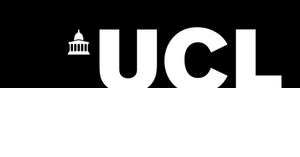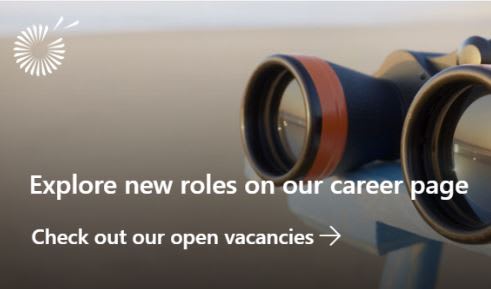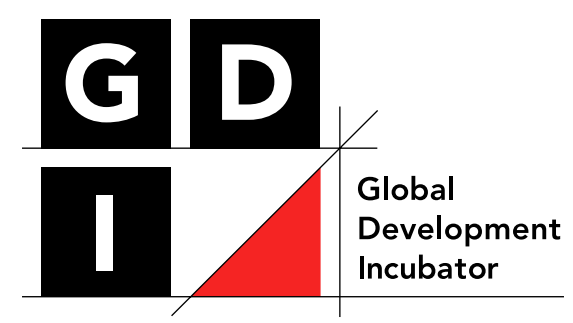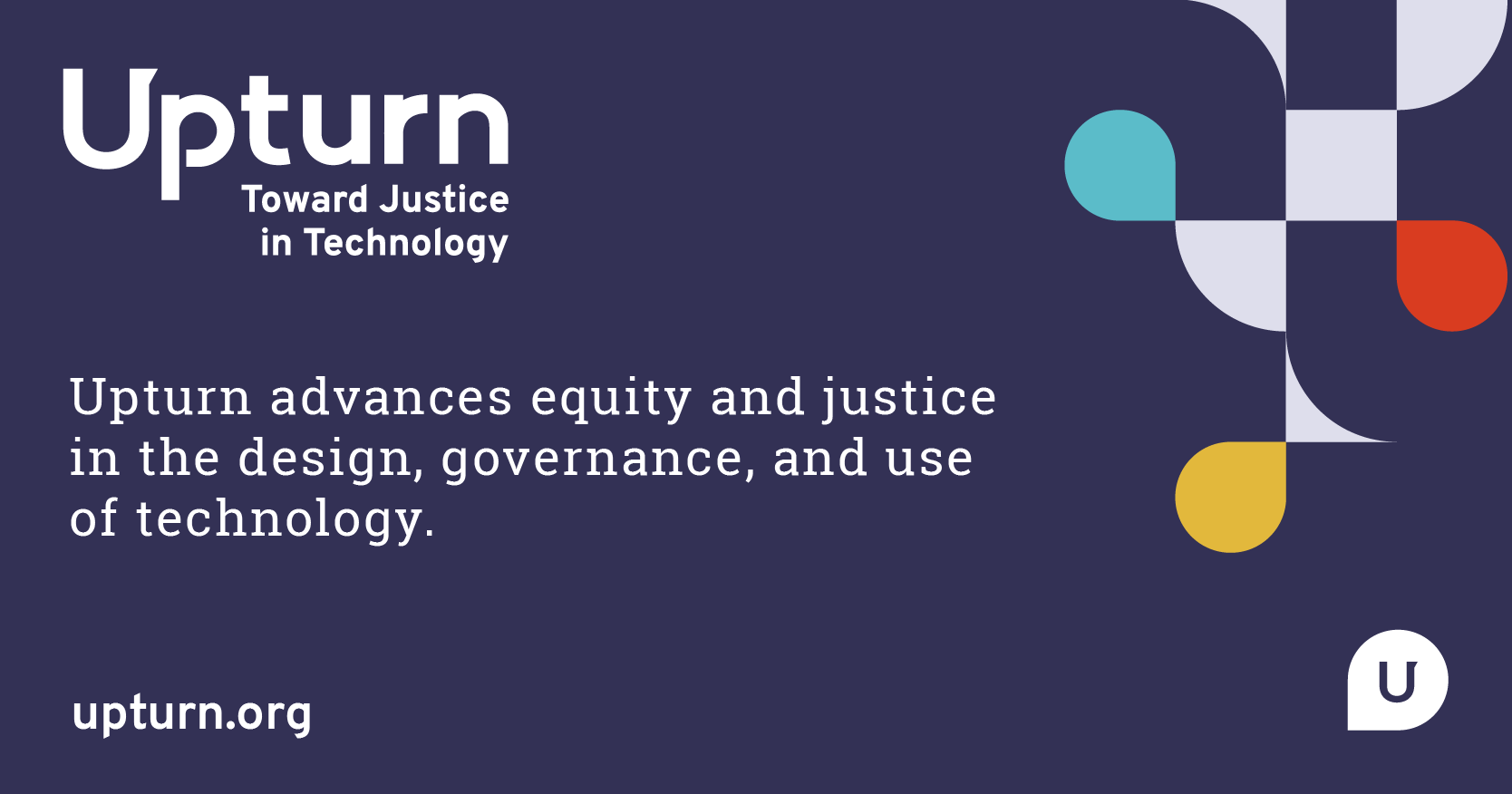Trusted by millions. Actually enjoyed by them too.
Morning Brew makes business news something you’ll actually look forward to — which is why over 4 million people read it every day.
Sure, the Brew’s take on the news is witty and sharp. But the games? Addictive. You might come for the crosswords and quizzes, but you’ll leave knowing the stories shaping your career and life.
Try Morning Brew’s newsletter for free — and join millions who keep up with the news because they want to, not because they have to.
Join the PCDN Career Campus. Special Offer
What Members Get:
🎯 350+ Monthly Impact Opportunities
🧭 Office Hours with Dr. Craig Zelizer. Our Next office hours is Thursday at 9:30 am EST.
🤝 Global Peer Support
🧠 Extensive Resource Library
Workshops
👩💻 Growing AI Impact Tool Database
🏖 Special
3 Months for 1!
Ends November 20, 2025
Code: Summerglobal
🚨 Automate Podcast Guest Spots and Fill Your Calendar Fast
If you’re a coach or consultant, podcast guesting is the NEW proven & fastest path to full calendars. Stop burning budget on ads and hoping for clicks. Podcast listeners lean in, hang on every word, and buy from guests who deliver real value (like you!). But appearing on dozens of incredible podcasts overnight as a guest has been impossible to all but the most famous until now.
Podcast guesting gets you permanent inbound guests, permanent SEO, and connects you to the best minds in your industry as peers.
PodPitch.com is the NEW software that books you as a guest (over and over!) on the exact kind of podcasts you want to appear on – automatically.
⚡ Drop your LinkedIn URL into PodPitch.
🤖 Scan 4 Million Podcasts: PodPitch.com's engine crawls every active show to surface your perfect podcast matches in seconds.
🔄 Listens to them For You: PodPitch literally listens to podcasts for you to think about how to best get the host's attention for your targets.
📈 Writes Emails, Sends, And Follows Up Until Booked: PodPitch.com writes hyper-personalized pitches, sends them from your email address, and will keep following up until you're booked.
👉 Want to go on 7+ podcasts every month and change your inbound for life? Book a demo now and we'll show you what podcasts YOU can guest on ASAP:
Check out the World’s Best AI Assisted Writing Assistant
one of our favorite tools (featured partner post)

Lex is your AI-powered writing assistant and is it so much better than Word, Google Docs or any AI writing tool we’ve tried. It provides sharp, objective feedback to enhance clarity, coherence, and impact in your writing. Say goodbye to writer's block and elevate your writing effortlessly—experience Lex today and transform your ideas into powerful messages that resonate.
If you sign up for a paid (there are also free options) PCDN will get a small % of revenue to support our work.
The Best Ways to Master AI (And Why Most People Are Learning It Wrong)
Here's something wild: 92% of students now use generative AI, up from just 66% last year. AI literacy has rocketed to become LinkedIn's #1 skill on the rise in 2025, and 90% of tech workers already use AI in their jobs. The revolution isn't coming—it's here. But here's the problem: most people are still trying to learn AI the old way, through passive courses and theory. Spoiler alert: that doesn't work.
The data is crystal clear. AI-fluent employees are twice as likely to have learned through hands-on experimentation rather than just watching videos or reading articles. Students learning with active AI engagement score 54% higher on tests compared to traditional methods. So if you're serious about mastering AI, it's time to flip the script.
1. Use It As Much As Possible—Experiment Daily
This isn't just motivational advice; it's backed by hard evidence. Research from Harvard Business Publishing and Degreed found that the key differentiator between AI-fluent professionals and everyone else is simple: practice. AI-fluent workers reported 81% higher productivity, 54% more creativity, and 53% better problem-solving skills. They didn't get there by hoarding bookmarks—they got there by doing.
Start today. Use ChatGPT to draft your emails. Ask Claude to help brainstorm project ideas. Experiment with Perplexity for research. Use AI image generators like DALL-E or Midjourney for presentations. The more you use these tools in your actual workflow, the faster you'll develop intuition for what works and what doesn't.
Here's the thing about AI: it's not just something you learn about—it's something you learn with. Unlike studying chess where pieces don't give you feedback, AI can execute a task, explain its reasoning, and suggest improvements in real-time. That's why personalized AI learning delivers 30% improvement in outcomes compared to traditional approaches.
2. Always Think About Ethics, Privacy, and Responsible Use
Before you get too excited clicking "generate," pump the brakes. AI fluency isn't just about knowing how to use tools—it's about knowing when and how to use them responsibly.
Think about bias. AI models are trained on data that reflects historical inequalities, which means they can perpetuate discrimination in hiring, lending, healthcare, and more. Think about privacy. Are you uploading sensitive client data into a public AI tool? Think about transparency. Can you explain how the AI arrived at its recommendation?
The good news: you don't need a philosophy degree to navigate this. The University of Helsinki offers a free Ethics of AI course, and the LSE Ethics of AI Online Masterclass provides a three-week program applying moral concepts to business situations. Coursera and edX also host excellent AI ethics courses from top universities.
Bottom line: responsible AI isn't a nice-to-have. It's the foundation of sustainable impact. And organizations are noticing—60% of leaders believe their teams have an AI literacy skill gap, which means ethical AI knowledge isn't just valuable, it's marketable.
3. Ask AI Tools to Train You
Here's a learning hack most people miss: AI itself can be your best teacher. Want to learn prompt engineering? Ask ChatGPT to create a personalized curriculum. Want to understand machine learning concepts? Have Claude break them down with examples specific to your industry.
You can even go meta: ask AI to quiz you, provide feedback on your work, simulate job interviews, or role-play challenging conversations. One Oxford lecturer experimented with having ChatGPT impersonate him and teach a master's course based on his own research—and it worked remarkably well.
The self-directed learning approach is powerful. AI-fluent professionals engage in learning at least weekly, with a third doing it daily. But here's what sets them apart: they don't just consume content—they experiment with it immediately. AI provides 10x faster feedback than traditional methods, which means you can iterate and improve in real-time.
4. Subscribe to Quality AI Newsletters
You can't master what you don't follow. The AI landscape changes weekly—new models launch, capabilities expand, regulations evolve. Newsletters keep you in the loop without drowning you in information.
Some solid options:
AI for Impact Newsletter – Tools, insights, and opportunities at the intersection of AI and social change (subscribe to stay ahead on AI for social good!)
The Rundown AI – Daily practical applications and tool reviews
The Batch – DeepLearning.AI's authoritative research insights
Superhuman AI – Over 1 million subscribers, great for busy professionals
Import AI – Technical research and policy analysis
5. Take Structured Courses—LinkedIn Learning, PCDN Career Campus, and Maven
While experimentation is crucial, structured learning provides the framework you need to make sense of what you're doing. Think of courses as the map; experimentation is the journey.
LinkedIn Learning has emerged as a powerhouse for AI education, with users seeing 98% higher year-over-year growth in AI skill development compared to non-users. Their courses are designed for busy professionals—most take under 2 hours and require zero technical background. Popular options include Introduction to Prompt Engineering for Generative AI, Artificial Intelligence Foundations: Machine Learning, and Ethics of AI.
PCDN Career Campus offers training and workshops specifically designed for impact professionals looking to integrate AI into their work. These programs connect you with a global community of changemakers while building practical AI skills you can apply immediately to scale social change.
Maven hosts live, cohort-based courses taught by practitioners who are actually building with AI. PCDN's courses on Maven include cutting-edge programs designed for impact professionals. Maven's broader AI catalog includes AI Product Management Bootcamp (build and launch real AI products with no-code tools, earn 3 certifications), Building Agentic AI Applications, Prototyping with AI Bootcamp (build real prototypes in 2.5 weeks, no coding required), and AI Agent Builder Bootcamp.
Other platforms worth exploring:
Coursera – Partnerships with Stanford, DeepLearning.AI, and Google for deeper technical dives
DataCamp – Interactive coding exercises focused on AI/ML with Python and R
edX – University-backed programs including bachelor's and master's degrees in AI
Fast.ai – Project-oriented deep learning for practitioners
Corporate AI training has shown a 57% increase in learning efficiency, with employees completing training faster while demonstrating better retention and application.
6. Tap Into Free Learning Pathways from Major Tech Companies
Here's something most people don't realize: the biggest tech companies in the world offer completely free AI training programs. Why? Because they need AI-literate professionals using their platforms, and they're willing to invest in your education to get there.
Google AI offers comprehensive free courses including Machine Learning Crash Course, Introduction to Generative AI, and Responsible AI practices. Their Google Cloud Skills Boost platform provides hands-on labs where you can practice with real cloud environments.
Microsoft Learn has extensive free AI learning paths covering Azure AI services, machine learning fundamentals, and responsible AI development. Their learning modules include interactive exercises and real-world scenarios.
Amazon Web Services (AWS) provides free digital training on machine learning, deep learning, and AI services. Their AWS Skill Builder platform offers role-based learning paths for developers, data scientists, and business leaders.
IBM Skills Network delivers free courses on AI, machine learning, and data science, with many offering certificates upon completion. Their AI Engineering Professional Certificate program is particularly comprehensive.
NVIDIA Deep Learning Institute offers free courses on AI fundamentals, deep learning, and accelerated computing. While some advanced courses require payment, their foundational content is accessible to everyone.
Meta AI provides open-source AI tools and educational resources, including PyTorch tutorials that power much of modern AI development.
Intel AI Academy offers free courses on AI theory, tools, and deployment across Intel architectures.
These company-backed programs aren't just marketing—they're legitimate, high-quality education from the teams actually building AI systems. Plus, earning certificates from these platforms adds recognized credentials to your resume.
7. Learn from YouTube (The World's Largest Free AI University)
Let's be honest: YouTube might be the most underrated AI learning platform on the planet. With thousands of expert creators producing daily content, you can learn everything from basic AI concepts to advanced prompt engineering—all for free.
Top AI YouTube Channels:
Two Minute Papers – Breaking down complex AI research papers into digestible explanations
Andrej Karpathy – Former Tesla AI director teaching neural networks from scratch
3Blue1Brown – Stunning visual explanations of the math behind AI
Sentdex – Practical Python and machine learning tutorials
StatQuest with Josh Starmer – Clear explanations of statistics and machine learning concepts
AI Explained – Latest AI news and model releases explained
Matt Wolfe – Weekly AI tool reviews and practical applications
All About AI – Comprehensive coverage of AI developments
AI Advantage – Business-focused AI tool tutorials and automation
The beauty of YouTube is its diversity. Want to understand transformers architecture? Watch Andrej Karpathy's deep dive. Need a quick tutorial on using ChatGPT for content marketing? Dozens of creators have you covered. Curious about the latest model release? AI news channels break it down within hours.
Pro tip: Create playlists for different learning goals (AI fundamentals, prompt engineering, specific tools, ethics discussions) and watch one video daily. At 15-20 minutes per day, you'll absorb hundreds of hours of expert instruction over a few months—absolutely free.
The Bottom Line
AI literacy isn't optional anymore—it's foundational. But mastering AI isn't about collecting certificates or bookmarking articles. It's about daily practice, ethical awareness, continuous learning, and community engagement.
The research is unambiguous: experimentation drives fluency. So stop waiting for the perfect course or the right moment. Start using AI tools today. Ask them questions. Test their limits. Break things. Learn from the failures. That's how you develop intuition and confidence.
And here's your reward: AI-fluent professionals report being more productive, more creative, and better equipped to tackle complex challenges. They're also positioned to thrive in an economy where AI skills are the most in-demand across every sector.
Oh, and one more thing: Why did the AI go to therapy?
Because it had too many neural issues and kept hallucinating about its training data. 🤖
But seriously—unlike that AI, you don't need therapy to get started. You just need to start. Pick one tool. Use it for one task. Repeat tomorrow. Before you know it, you'll be fluent.
Ready to dive deeper?
Subscribe to the AI for Impact Newsletter for weekly insights on AI and social change
Explore courses at PCDN Career Campus
Check out PCDN's courses on Maven
Browse all AI courses on Maven
Dive into YouTube and follow top AI educators
Start experimenting with ChatGPT, Claude, or Perplexity
The future of work is AI-augmented. The future of impact is AI-enabled. And the best time to start learning? That was yesterday. The second-best time? Right now.
Social Impact News & Resources
😄 Joke of the Day
Why did the sustainability consultant bring a compass to work? Because they always need to find the true north for their impact strategy!
🌐 News
The New Humanitarian has documented nearly 200 attacks on people trying to collect food and other essentials in Gaza through their open-source database, revealing a deadly tactic that has sharply escalated since May. The systematic attacks on aid seekers represent a critical barrier to humanitarian access as civilians face increasing risks when attempting to secure basic necessities.
The European Union announced €21.5 million in new humanitarian aid to address deepening crises in Venezuela, Haiti, and Caribbean countries devastated by Hurricane Melissa. The funding includes €14.5 million for Venezuela and its spillover effects, €5 million for hurricane response in Jamaica, Cuba, and Haiti, and €2 million for Haiti's escalating gang violence crisis, which has forced record numbers of people to flee their homes.
Mongabay reports that as COP30 approaches, the world faces a critical decision about tropical forests: "The first act of the forest crisis was destruction. The second, if there is to be one, must be design—deliberate, structural, and sustained". The analysis emphasizes that while collapse is still avoidable, the next decade will determine whether the world's great forests continue to regulate climate or slide into chronic degradation.
Pioneers Post highlights Malaysian social enterprise Tonibung, which Social Enterprise World Forum founder Gerry Higgins ranks in the top 10 social enterprises he's ever seen. Unlike donor-driven tech initiatives that often fail when problems arise, Tonibung's approach is "born from deep knowledge of how to engage with communities," creating what Higgins calls "the most sustainable economic model" for bringing technology to rural villages.
💼 Jobs, Jobs, Jobs
Looking for impact career opportunities? PCDN's Job Board is a comprehensive resource featuring positions across the social impact ecosystem, from grassroots nonprofits to global development organizations. The platform aggregates opportunities in program management, advocacy, fundraising, monitoring and evaluation, and more—making it easier to find roles aligned with your skills and passion for creating positive change in communities worldwide.
🎧 Podcast to Check Out
Outrage + Optimism released "Inside COP: From Grief to Agency" on November 7, exploring how the world's climate finance system can make COP30 a turning point from pledges to real investment. The episode features Sue Reid demystifying public and private finance landscapes, plus Laura Moraes from Earth FC on how football's global reach is rallying millions around climate action. Listen on Apple Podcasts, Spotify, or Acast.
🔗 LinkedIn Profile to Follow
Karin Kimbrough, Chief Economist at LinkedIn, regularly shares data-driven insights on labor markets, economic trends, and workforce development. Her analysis connects economic indicators to real-world impact on workers and communities globally.













Social Impact Opportunities